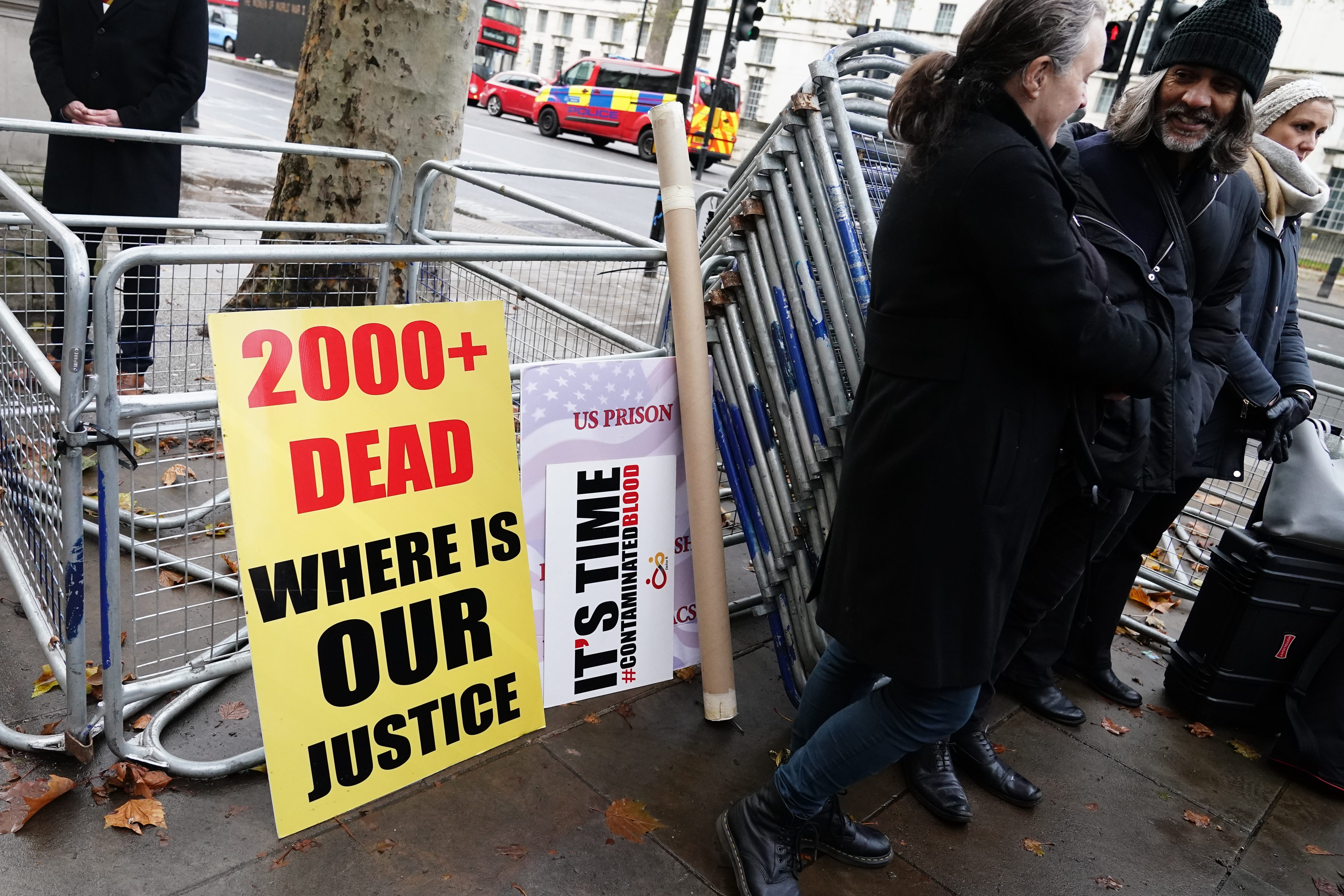Infected blood scandal has taken ‘far too long’ to resolve, says Shapps
The long-awaited final report from Sir Brian Langstaff’s public inquiry will be published on Monday.

Your support helps us to tell the story
From reproductive rights to climate change to Big Tech, The Independent is on the ground when the story is developing. Whether it's investigating the financials of Elon Musk's pro-Trump PAC or producing our latest documentary, 'The A Word', which shines a light on the American women fighting for reproductive rights, we know how important it is to parse out the facts from the messaging.
At such a critical moment in US history, we need reporters on the ground. Your donation allows us to keep sending journalists to speak to both sides of the story.
The Independent is trusted by Americans across the entire political spectrum. And unlike many other quality news outlets, we choose not to lock Americans out of our reporting and analysis with paywalls. We believe quality journalism should be available to everyone, paid for by those who can afford it.
Your support makes all the difference.Victims of the infected blood scandal have had to wait “far too long” for compensation, a Cabinet minister acknowledged ahead of Monday’s long-awaited public inquiry report.
The worst treatment disaster in the history of the NHS saw tens of thousands of people infected with contaminated blood or blood products between the 1970s and early 1990s.
An estimated 3,000 people have died as a result, while those who survived have lived with life-long health implications, and compensation costs are expected to reach at least £10 billion.
The fact it’s taken decades and decades to get to this point of course is absolutely wrong
The inquiry, the largest ever carried out in the UK, was launched in 2017 by then prime minister Theresa May.
Defence Secretary Grant Shapps told the BBC: “I think it has taken far too long to get to this. A problem that has gone on for decades.”
On LBC Radio he said the publication of the Infected Blood Inquiry report would be a “very significant moment”, adding: “The fact it’s taken decades and decades to get to this point of course is absolutely wrong.”
The size of the compensation bill could cause a political headache for Chancellor Jeremy Hunt but he insisted he would deliver on a promise made to campaigner Mike Dorricott in 2014.
Mr Dorricott was 46 at the time, and had learned just weeks before meeting Mr Hunt that he had terminal liver cancer – a disease linked to the hepatitis C he contracted as a teenager from contaminated Factor 8 blood products.
After telling his family the news that he only had months to live, he visited the then health secretary, Mr Hunt, in Whitehall.
He told the future Chancellor he was angry that infected patients and their families had not received a full and fair settlement.
Towards the end of the meeting, Mr Hunt shook his hand and said: “Don’t worry about this, we’ll sort it.”
Just a few months later, Mr Dorricott died, aged just 47.
Mr Hunt told The Sunday Times that a new compensation package for those affected by the scandal will be “thanks to Mike more than anyone else”.
He added: “And it’s one of the saddest things that he’s not around to see it.”
The Chancellor told the paper that Mr Dorricott was “so gentle, so decent”.
It brings me solace to know that even in death, Mike continues to make a difference
“I imagine after that meeting that Mike thought that he’d been fobbed off by yet another politician giving him the runaround,” he said, adding: “But what Mike didn’t know was that he really had made a huge impression on me.”
Mr Hunt said the money will be funded through Government borrowing, and that the package could be unveiled as soon as Monday – when the final report of the inquiry is due to be published.
He said the Government would look “very sympathetically” on any request from the victims or families for a national memorial.
“What we want to do after Monday is very close engagement with all the families who’ve been through such hell and understand from them what the next steps need to be,” he said.
Mr Dorricott’s widow, Ann, 57, told the paper that the announcement “brings me solace”.
“It brings me solace to know that even in death, Mike continues to make a difference,” she said.
“He was a pillar of strength, fighting for justice until his last breath and his absence is deeply felt every day.
“I know that Mike always held Jeremy Hunt in high regard, and even though it has taken 10 years, he would be pleased that justice is finally being delivered to the victims.”
Shadow health secretary Wes Streeting said “successive governments” bear responsibility for the “appalling” contaminated blood scandal.
He told Sky News: “I have not seen the report yet but I would anticipate that Sir Brian Langstaff is going to criticise… successive governments.
“Everyone has got their responsibility to bear in this appalling scandal and we have got a shared responsibility to put it right.”